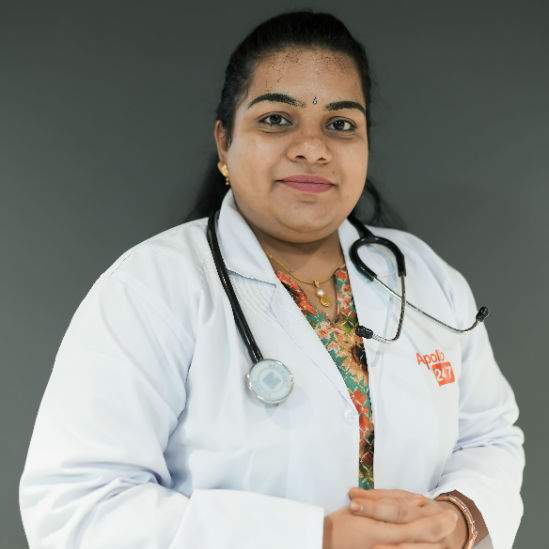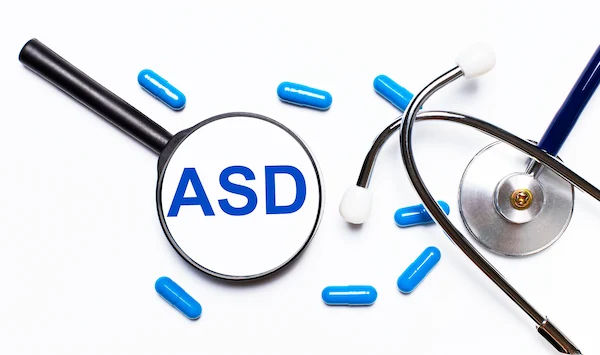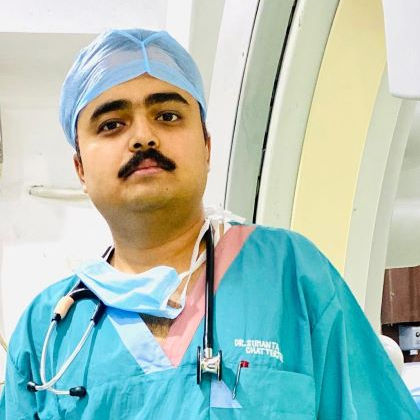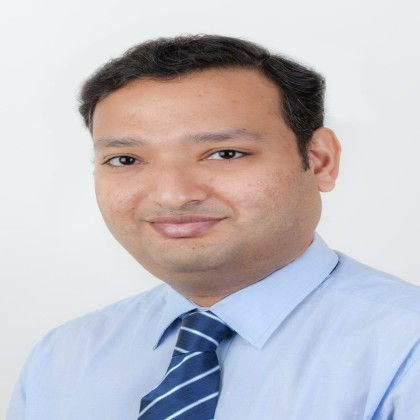Adult Atrial Septal Defect and Life Expectancy
learn about ASD, different types, tips to manage it, symptoms and treatment options. Also, learn how to live a long and healthy life with an Adult Atrial Septal Defect.


Introduction
An Atrial Septal Defect (ASD) is a congenital heart condition where there is a hole in the wall (septum) that separates the heart's two upper chambers (atria). While many ASDs are diagnosed and treated in childhood, some may go unnoticed until adulthood. If you or a loved one has been diagnosed with an Adult Atrial Septal Defect, read on to get the answers to questions about how it affects health and influences life expectancy.
This article will help you understand:
- What is ASD?
- Symptoms to watch for
- How does it impact heart health?
- Treatment options
- Lifestyle tips for better heart health
- Life expectancy concerns
What is an Atrial Septal Defect (ASD)?
An ASD is a birth defect where a hole remains in the septum between the atria. Normally, the hole in the septum closes shortly after birth, but in some cases, it doesn’t. A small ASD may not cause problems, but a larger one can lead to complications over time.
Types of ASD
Based on the location of the hole, the ASD is classified into 4 types, including:
- Secundum ASD – It is the most common type, and it is located in the middle of the atrial septum.
- Primum ASD – It is located near the lower part of the septum and is often associated with other heart defects.
- Sinus Venosus ASD – It's found near the veins entering the heart, often associated with abnormal connections of the lung veins.
- Coronary Sinus ASD – A rare type where part of the wall between the coronary sinus and left atrium is missing.
Symptoms of ASD in Adults
Many adults with ASD may not experience symptoms in the initial stages. However, over time, these symptoms may appear:
- Shortness of breath (especially during exercise)
- Fatigue or feeling easily tired
- Heart palpitations (irregular heartbeat)
- Swelling in legs, feet and abdomen
- Frequent lung infections
- Stroke (in rare cases due to blood clots passing through the hole)
When you notice these symptoms, consult a doctor immediately for further evaluation.
How Does ASD Affect Heart Health?
The ASD can affect heart health in various ways, where an untreated ASD can lead to:
- Increased Blood Flow to Lungs – The hole allows oxygen-rich blood to mix with oxygen-poor blood, forcing the heart and lungs to work harder.
- Pulmonary Hypertension – High blood pressure develops in the lungs due to excess blood flow, which can damage lung arteries.
- Right-Sided Heart Enlargement – The right side of the heart may enlarge and weaken with time.
- Arrhythmias (Irregular Heartbeat) – It is characterised by increased strain on the heart, which can lead to abnormal heart rhythms.
- Heart Failure – If ASD is untreated for a long time, the heart may struggle to pump blood effectively, leading to heart failure.
Diagnosis and Treatment Options
Diagnosis
If your doctor suspects an ASD, they may recommend:
- Echocardiogram (Ultrasound of the heart)
- Electrocardiogram (ECG) (Checks the heart’s electrical activity)
- Chest X-ray (Shows heart and lung condition)
- Cardiac MRI or CT Scan (Detailed heart imaging)
Treatment Options
The stage-by-stage treatment includes:
- Monitoring (For Small ASDs) – If the hole is small and not causing symptoms, regular check-ups may be enough.
- Medications – It is for the management of symptoms, including arrhythmias or heart failure (e.g., beta-blockers, diuretics).
- Surgical Closure – This procedure is used for larger ASDs with holes. The procedures include:
- Catheter-Based Repair – It involves a thin tube (catheter) that is used to place a patch over the hole.
- Open-Heart Surgery – It is required for complex ASDs where the hole is closed by stitching or patching.
The treatment options are often successful, and most adults with ASD who undergo treatment lead normal, healthy lives.
Consult the ASD cardiology expert
Lifestyle Tips for Managing ASD
Even after treatment, maintaining heart health is crucial; a few tips to manage include:
- Regular Exercise – Moderate activities like walking, swimming, or cycling help strengthen the heart. Avoid intense workouts without medical advice.
- Healthy Diet – Eat heart-friendly foods like fruits, vegetables, whole grains, and lean proteins. Limit salt, sugar, and saturated fats.
- Avoid Smoking & Alcohol – Both can worsen heart conditions.
- Monitor Blood Pressure – Keep blood pressure under control to reduce strain on the heart.
- Regular Check-ups – Follow up with your cardiologist to monitor heart function.
Life Expectancy with ASD
The expectancy of life for someone with ASD depends on several factors; a few of the important ones are given below:
Most adults who availed treatment for ASD have a normal life expectancy, especially if the defect is repaired early.
The treatment result depends on:
- Size of the defect (Larger holes may cause complications if untreated).
- Age at diagnosis & treatment (Earlier repair leads to better outcomes).
- Presence of other heart/lung conditions (In case of pulmonary hypertension, it can severely reduce life expectancy).
When to Seek Help?
As for help immediately during:
- Worsening shortness of breath
- Extreme fatigue
- Irregular heartbeat
- Swelling in the legs or abdomen
Consult a cardiologist as soon as possible. Early intervention can help prevent complications.
Final Thoughts
An Adult Atrial Septal Defect is manageable with proper medical care. Many individuals live full, active lives after treatment. If you suspect an ASD or have been diagnosed, regular follow-ups and a heart-healthy lifestyle are key to a healthy, long life.
Consult the ASD cardiology expert
Consult the ASD cardiology expert

Dr. Amit. A. Bharadiya
Cardiologist
12 Years • MBBS, MD General Medicine, DNB Cardiology, FSCAI
Maharashtra
Surabhi Hospital, Maharashtra, Maharashtra

Dr. S B Bhattacharyya
Cardiologist
22 Years • MBBS, MD(General Medicine),DM (Cardiology)
Kolkata
Gariaheart Clinic, Kolkata
Dr. Jayarajah Mariappan
Cardiologist
45 Years • MBBS, MD(GEN MEDICINE), DM(CARDIOLOGY)
Chennai
Sooriya Hospital, Chennai

Dr. Sumanta Chatterjee
Cardiologist
12 Years • MBBS,MD General Medicine,DM Cardiology
Kolkata
HealthYou Speciality Clinic & Diagnostics., Kolkata
(25+ Patients)

Dr. Mangesh Danej
Cardiologist
8 Years • MBBS, MD (General Medicine), DNB (Cardiology)
Pune
Dr Danej clinic, Pune
(375+ Patients)
Consult the ASD cardiology expert

Dr. Amit. A. Bharadiya
Cardiologist
12 Years • MBBS, MD General Medicine, DNB Cardiology, FSCAI
Maharashtra
Surabhi Hospital, Maharashtra, Maharashtra

Dr. S B Bhattacharyya
Cardiologist
22 Years • MBBS, MD(General Medicine),DM (Cardiology)
Kolkata
Gariaheart Clinic, Kolkata
Dr. Jayarajah Mariappan
Cardiologist
45 Years • MBBS, MD(GEN MEDICINE), DM(CARDIOLOGY)
Chennai
Sooriya Hospital, Chennai

Dr. Sumanta Chatterjee
Cardiologist
12 Years • MBBS,MD General Medicine,DM Cardiology
Kolkata
HealthYou Speciality Clinic & Diagnostics., Kolkata
(25+ Patients)

Dr. Mangesh Danej
Cardiologist
8 Years • MBBS, MD (General Medicine), DNB (Cardiology)
Pune
Dr Danej clinic, Pune
(375+ Patients)